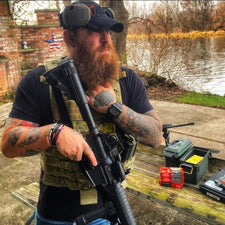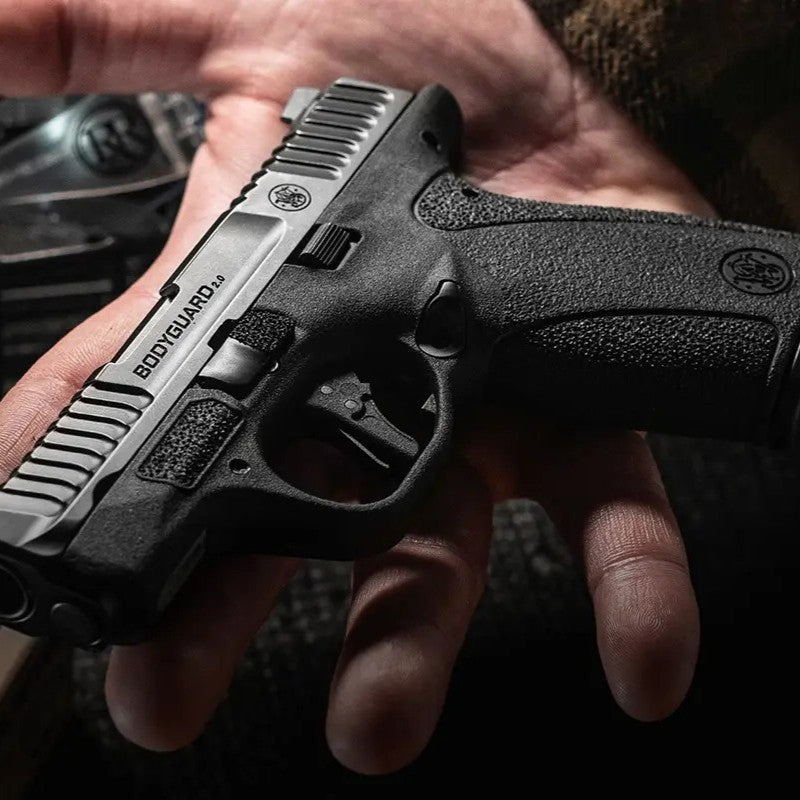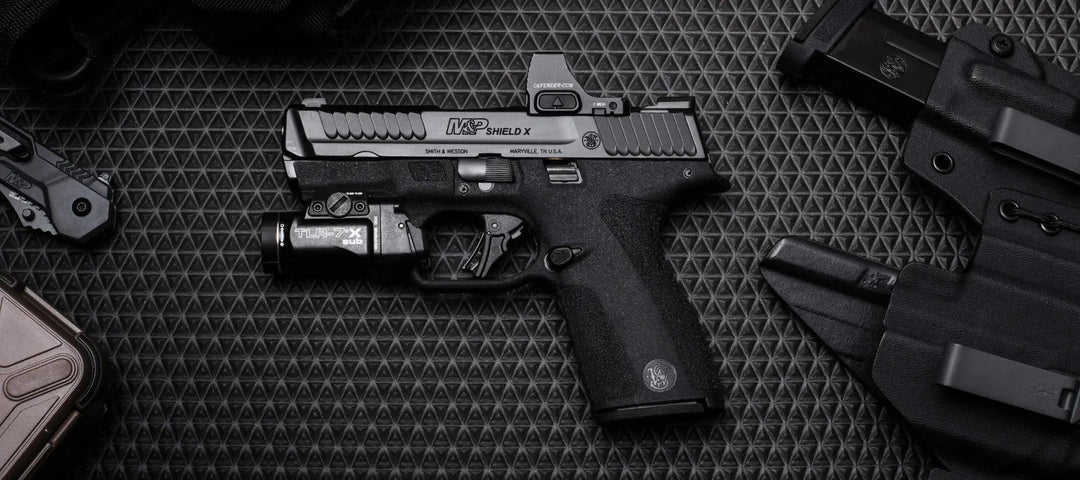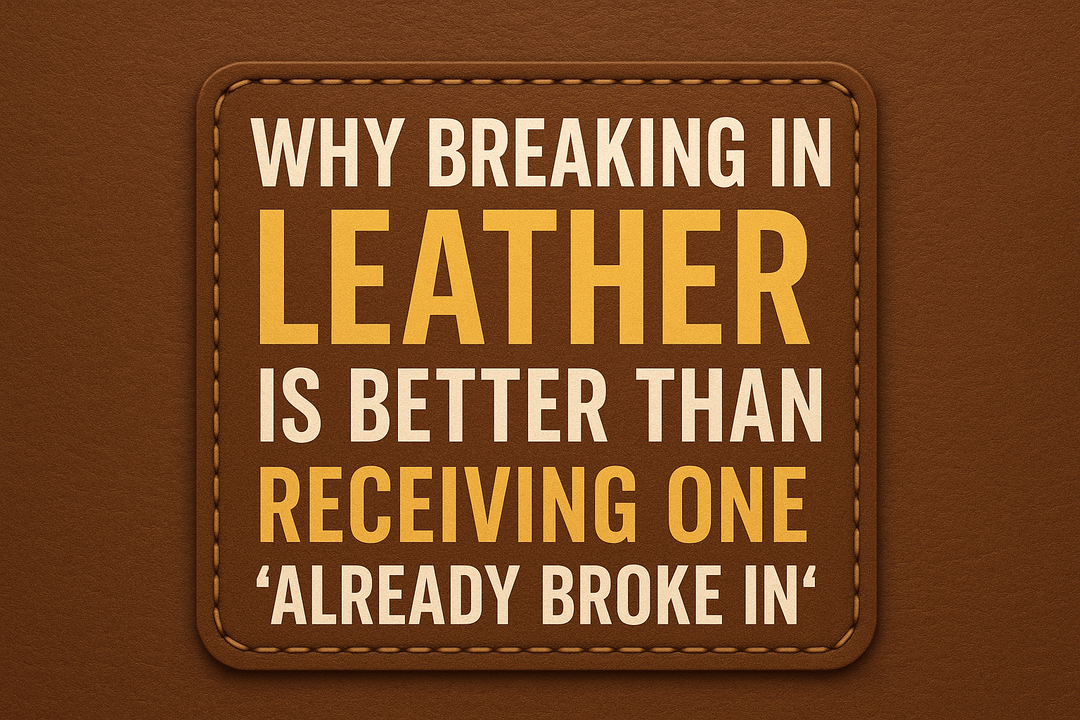Why Cleaning Your Gun Is Important: Safety, Performance, and Reliability
Cleaning your firearm isn't just about appearance—it's about keeping it safe, functional, and ready when it matters most. Whether you're a casual range-goer or rely on your weapon for home defense, proper gun maintenance is a cornerstone of responsible ownership. Since many firearm buyers purchase their guns for self-defense, it is critical that the gun operate at peak performance every time. Clean your gun as soon as possible after firing to keep it working like new.
It is imperative that you keep your firearm clean. Multiple firings cause the powder residue and other grime and gases to build up in the action and on the barrel. Over time, this can affect the performance of your gun, which can become unreliable and unpredictable in terms of performance. Here are a few cleaning tips:
- Always clean your gun in a well-lit area. Needless to say, you need to see what you’re doing
- Clean your gun far away from any open flame, outdoor or indoor, and remove any ammunition from the location. Of course, make sure you unload any ammo from your gun prior to disassembling it for cleaning.
- You’ll need a few tools that are easy to find, like an old toothbrush, Q-tips and some old t-shirts.
- A good cleaning kit should contain patches, a bore/chamber brush, punch rods, a cleaning solvent, and a lubricant. A bore snake tool is also handy to have around. There are quite a few cleaning products on the market that are not solvent-based, if you prefer that type of cleaner. They’re a good option because they don’t emit the strong fumes that solvents do, and if your gun has plastic parts, these cleaners are gentler on those plastics. Just remember that you should always clean your gun in a well ventilated area, regardless of the products you use.
- A wide selection of cleaning products exists on the market. Ask around and read reviews to find the best ones.
There are key areas of a gun that need to be cleaned, and they depend on the type of gun you own.
- For a semi-automatic pistol, the chamber, side rails, slide rails, feed ramp, trigger group area, and magazine well all need cleaning. These areas are typically easy to clean and typically don’t require scrubbing unless you haven’t cleaned your gun in a while; the most carbon buildup tends to be in the feed ramp and the chamber itself. Use the toothbrush to remove any caked on carbon buildup. Clean your magazines too, especially if you’ve done quite a few reloading drills; clean inside the base plate and get the follower too. Remember to never put oil in your magazines because debris will just collect and get gunked up.
- Revolvers are much easier to clean; just give the chamber, cylinder and barrel a good wipe down. Most gun experts recommend cleaning the barrel in the same direction that the bullet travels to avoid damage of the crown or muzzle. The direction doesn’t matter if you use a boresnake for cleaning, and some guns like snub-nosed revolvers can only be easily cleaned from the muzzle side. For the barrel, use a cleaning solution and barrel brush made for your caliber; pass it through several times, then use a cleaning rod with a patch until the patches come out clean. When you’re done, look down the barrel to inspect the clean lands and groves.
After you’re done cleaning, put your gun back together and perform a function check. For a semi-automatic, cycle your slide and pull the trigger. Check the striker release, hammer fall, and reset for proper function.
To check the feed, extraction and eject, use dummy rounds or snap caps. After all testing is done, wipe your firearm down with a few drops of oil on a cloth, but don’t use too much because you don’t want your firearm to be slippery to handle.
Common Gun-Cleaning Questions:
What Are Firearm Cleaning and Lubrication Best Practices?
Following firearm cleaning and lubrication best practices helps remove fouling, carbon buildup, and moisture that can degrade performance. Use a bore brush, solvent, and CLP (Clean-Lubricate-Protect) solution after each range trip or every 30–60 days for stored firearms. Pay special attention to the barrel, slide rails, and feed ramp—just like you'd service a car engine to keep it running smoothly.
How Does Cleaning Prevent Malfunctions and Misfires?
A dirty firearm is more prone to malfunctions and misfires, including failure to feed, eject, or ignite a round. These stoppages can be catastrophic in defensive situations. Regular maintenance ensures consistent function and helps you catch damaged or worn parts before they cause a failure.
Why Is Long-Term Reliability Tied to Maintenance?
Want your firearm to last thousands of rounds? Focus on long-term firearm reliability and wear management. Clean guns run cooler and more efficiently, reducing wear on springs, extractors, and moving parts over time. This extends service life and protects your investment.
What Role Does Cleaning Play in Safe Gun Ownership?
Clean guns are safer guns. Safe firearm handling and responsibility includes inspecting for damage, checking functionality, and ensuring your firearm is ready for home defense readiness—not just when you want it, but when you need it.
Conclusion
Keeping a gun clean improves its useful life and can make it last for decades. Guns that are not cleaned deteriorate fairly rapidly, so if you want to sell your gun, this will greatly lessen its value on the market. Setting time aside for cleaning is definitely worth it—a little maintenance goes a long way.
See all of our cleaning videos on our YouTube channel and subscribe for regular videos!

Richard Calvette
Firearms Expert, Urban Carry Holsters
I've been with Urban Carry Holsters since 2020, proudly serving as the Firearms Expert. Before that, I served 8 years in the United States Marine Corps, including a deployment to Iraq from 2009 to 2010. During my time in the Infantry as a Sergeant, I developed a deep interest in the wide range of firearms we used. It fascinated me to learn why specific weapons were chosen for different missions and roles.Breaking into the firearms industry wasn't easy, but persistence paid off. While attending a trade show, I discovered the Sonoran Desert Institute. That opportunity led me to earn an Associate of Science in Firearms Technology, along with certifications as a Pistol Expert and Range Safety Officer.My passion for firearms continues to grow every day. I'm always learning, always improving, and always striving to bring that knowledge and experience to the work we do here at Urban Carry.





